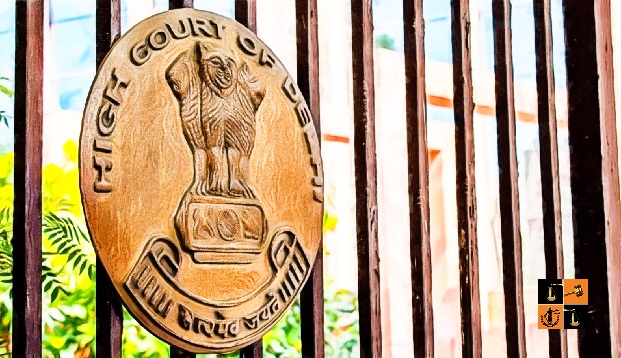The Delhi High Court held that the prosecution under the Prevention of Money Laundering Act (hereinafter referred to as “PMLA”) cannot proceed concerning 'scheduled offences' in FIRs that have been 'quashed.' Justice Amit Sharma articulated the principle that emerges from the case, asserting that a 'scheduled offence,' once an FIR has been quashed, ceases to exist. The court, in its considered opinion, concluded that in the present case, there is no basis for prosecuting under the PMLA with respect to the 'scheduled offences' outlined in the first two FIRs.
Brief Facts:
The case before the Delhi High Court involved a petition filed by Rajinder Singh Chadha, seeking the quashing of PMLA proceedings initiated by the Enforcement Directorate (hereinafter referred to as “ED”). The genesis of the matter lay in two First Information Reports (hereinafter referred to as “FIRs”) registered by the Economics Offences Wing (hereinafter referred to as “EOW”), alleging non-possession of promised flats despite payments made in 2006-07 by complainants. These FIRs targeted Chadha, a director of the accused company, M/s Uppal Chadha Hi-Tech. Subsequently, the FIRs were quashed and compounded after a settlement between the parties. The ED then initiated proceedings based on these FIRs, leading to a legal challenge before the Delhi High Court.
Contentions of the Parties:
Rajinder Singh Chadha, the petitioner, contended that once the FIRs were quashed and compounded, the scheduled offences associated with them ceased to exist. According to Chadha, this absence of scheduled offences precluded any prosecution under the PMLA. His argument rested on the principle that the quashing of FIRs extinguished the basis for money laundering charges.
On the other hand, the Enforcement Directorate maintained that the quashing of the FIRs did not negate the existence of scheduled offences. The ED argued that the third FIR, registered in the same year as the legal proceedings, provided a valid basis for continuing the investigation under the PMLA. The contention was that the registration of a subsequent FIR relating to the same project allowed for the lawful pursuit of money laundering charges, despite the quashing of earlier FIRs.
In essence, the dispute revolved around the interpretation of the legal implications of quashing FIRs, the persistence of scheduled offences, and the ED's authority to pursue PMLA proceedings based on subsequent FIRs.
Observations by the Court:
The Court firmly asserted that once an FIR has been quashed, a scheduled offence cannot persist. Therefore, the absence of a scheduled offence renders any money laundering charges related to the same non-existent.
After considering the arguments presented by the counsel, the High Court observed that the legal proposition cited by the Senior Counsel for the petitioner, as derived from precedent cases, was not contested. In those cases, the 'scheduled offence' was either quashed or compounded entirely. Contrary to these instances, in the present case, the 'scheduled offences' persisted through the third FIR. Importantly, the Court highlighted that even in an FIR investigated by local police with multiple complainants, the compounding with some complainants did not warrant the outright quashing of the entire FIR. The Court clarified that partial compounding/quashing was permissible. Further, the Court noted that since the third FIR was taken on record, the Enforcement Case Information Report (ECIR) could not be deemed devoid of a predicate offence. The key question before the Court, as elucidated earlier, pertained to whether the investigation in the contested ECIR could proceed based on the registration of the third FIR. The Court explicitly stated its position that the ECIR, distinct from an FIR and regarded by the department as serving administrative purposes, should not hinder the inclusion of the third FIR on record. This third FIR was linked to the same project that formed the foundation for the registration of the initial two FIRs, ultimately leading to the initiation of the contested ECIR.
Therefore, the court declined to quash a third FIR registered by the EOW in the current year, based on similar allegations as the previous FIRs. The court held that even if separate FIRs are filed by different home-buyers or investors, they cannot be considered separate causes of action for the registration of different ECIRs. The third FIR relates to the same project as the previous FIRs, and the court held that "scheduled offences" still exist in this context.
The decision of the Court:
The High Court partly allowed the petition.
Case Name: Rajinder Singh Chadha v. Union of India Ministry of Home Affairs through its Chief Secretary & Anr.
Coram: Hon’ble Mr. Justice Amit Sharma
Case No.: W.P.(CRL) 562/2023 & CRL.M.A. 5126/2023 (Stay)
Advocates of the Petitioner: Mr. Sandeep Sethi, Senior Advocate with Mr. Giriraj Subramanium, Mr. Akhilesh Talluri, Mr. Joy Banerjee, Mr. Ravi Pathak, Mr. Simarpal Singh Sawhney, Ms. Urvashi Singh and Mr. Siddhant Juyal, Advocates.
Advocates of the Respondent: Mr. Amit Tiwari, Senior Panel Counsel for R-1/Union of India. Mr. Zoheb Hossain, Special Counsel for R-2/Directorate of Enforcement with Mr. Vivek Gurnani and Mr. Kartik Sabharwal, Advocates.
Read Judgment @LatestLaws.com
Picture Source :


























